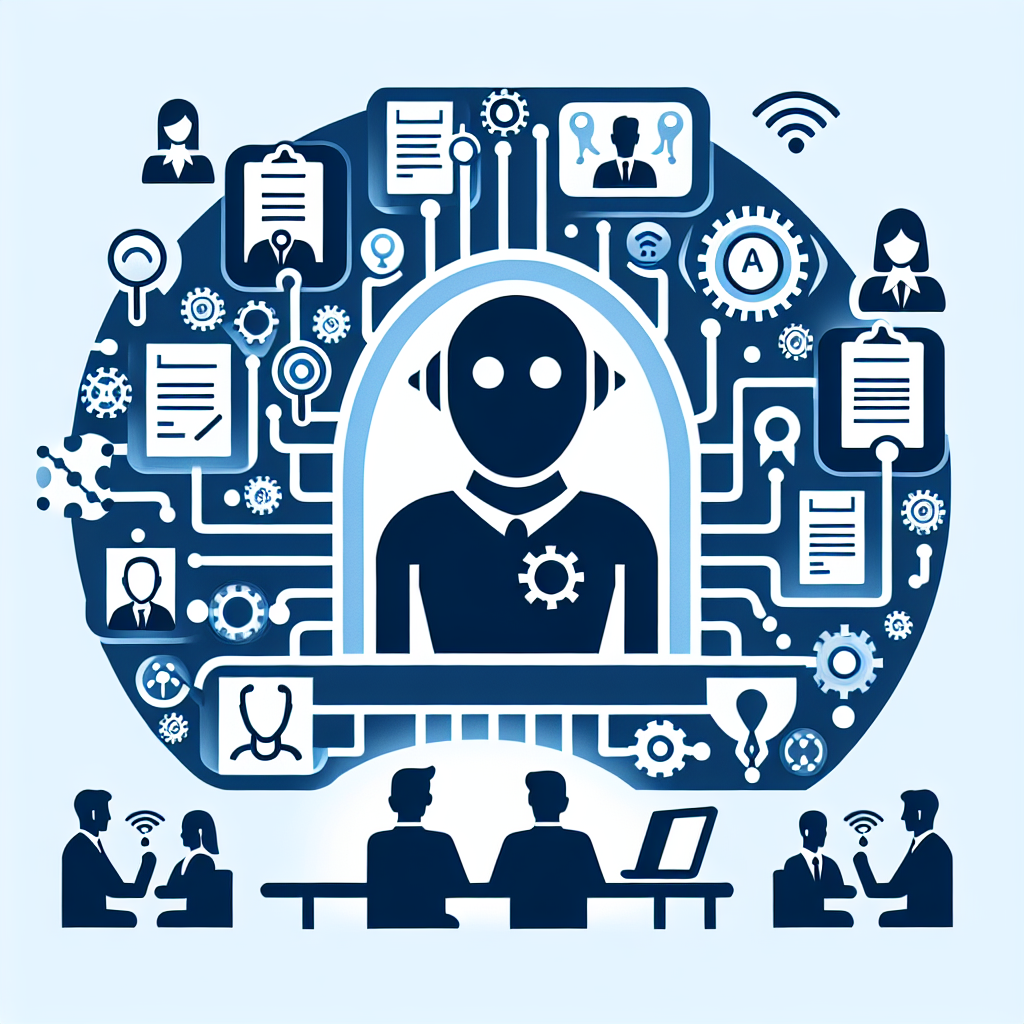Artificial Intelligence (AI) has been transforming various industries by automating processes, improving efficiency, and providing valuable insights. One area where AI has been making a significant impact is in Human Resources, particularly in recruitment and employee engagement. This article will explore how AI is enhancing recruitment processes and improving employee engagement in organizations.
Recruitment is a critical function in Human Resources, as it involves sourcing, screening, and selecting candidates for job positions. Traditionally, this process has been time-consuming and labor-intensive, requiring HR professionals to manually review resumes, conduct interviews, and assess candidates. However, with the help of AI, recruitment processes have been streamlined and made more efficient.
AI-powered tools, such as chatbots and virtual assistants, can engage with candidates, answer their questions, and provide information about job openings. These tools can also screen resumes and applications, using algorithms to match candidates with job requirements based on their skills and experience. This not only saves time for HR professionals but also ensures that only the most qualified candidates are considered for the position.
In addition, AI can analyze candidate data to identify patterns and trends in recruitment processes. This can help organizations improve their hiring strategies, by identifying which sources are most effective for attracting top talent, which job descriptions are most appealing to candidates, and which interview questions are most predictive of a candidate’s success in the role.
Furthermore, AI can help reduce bias in recruitment processes by focusing on objective criteria, rather than subjective judgments. By removing human bias from the equation, organizations can ensure a fair and equitable hiring process for all candidates.
Employee engagement is another area where AI is making a significant impact. Employee engagement refers to the emotional commitment and motivation that employees have towards their work and organization. Engaged employees are more productive, innovative, and loyal, leading to higher levels of performance and retention.
AI-powered tools, such as sentiment analysis and predictive analytics, can help organizations measure and improve employee engagement. These tools can analyze employee feedback, surveys, and performance data to identify trends and patterns in employee attitudes and behavior. This information can help organizations understand what motivates and engages their employees, and take action to enhance their experience at work.
For example, AI can analyze employee feedback to identify common themes or issues that are impacting engagement levels. This can help organizations address these issues proactively, by implementing strategies to improve communication, recognition, and career development opportunities for employees.
AI can also personalize the employee experience, by providing tailored recommendations and resources to support individual development and well-being. For example, AI-powered chatbots can provide employees with personalized learning opportunities, based on their skills, interests, and career goals. This can help employees feel more engaged and motivated, by offering them opportunities for growth and development that are relevant to their needs.
Overall, AI is enhancing recruitment processes and improving employee engagement in organizations by streamlining processes, reducing bias, and providing valuable insights. As AI continues to evolve, it will play an increasingly important role in shaping the future of HR, by empowering organizations to attract, retain, and engage top talent in a competitive market.
FAQs:
1. How can AI improve the recruitment process?
AI can improve the recruitment process by automating tasks such as resume screening, candidate sourcing, and interview scheduling. AI-powered tools can also analyze candidate data to identify patterns and trends in recruitment processes, helping organizations improve their hiring strategies and reduce bias in decision-making.
2. How can AI enhance employee engagement?
AI can enhance employee engagement by analyzing employee feedback, surveys, and performance data to identify trends and patterns in employee attitudes and behavior. This information can help organizations understand what motivates and engages their employees, and take action to enhance their experience at work.
3. What are some examples of AI-powered tools in HR?
Some examples of AI-powered tools in HR include chatbots, virtual assistants, sentiment analysis software, and predictive analytics tools. These tools can automate tasks, provide personalized recommendations, and analyze data to improve recruitment processes and employee engagement.
4. Is AI replacing HR professionals?
AI is not replacing HR professionals, but rather augmenting their capabilities and enhancing their efficiency. While AI can automate certain tasks and processes, HR professionals still play a critical role in decision-making, strategy development, and employee relations.
5. How can organizations implement AI in HR?
Organizations can implement AI in HR by investing in AI-powered tools and technologies, training HR professionals on how to use these tools effectively, and integrating AI into existing HR processes and systems. It is important for organizations to carefully consider the ethical implications of using AI in HR, and ensure that they are using these tools in a fair and transparent manner.

